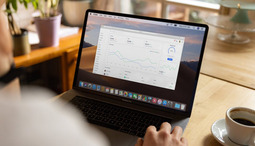- On
- 5 Dec 2023
- Reading time
- 3 minutes
Are you afraid to make online purchases for fear that your data will be stolen? No wonder, considering that with the passage of time online scams have increased dramatically. Even so, it is still possible to perform this operation safely.
In this post, we will give you some tips to protect your personal information and not become an easy target for scammers.
1. Reduce the information you provide in applications and services.
This is an effective measure to protect your information from people who try to get hold of it to scam you. Another way to do this is through paysafecard online, a payment method that offers security and anonymity when shopping online.
Many people share details of their lives on social networks. This is something that can become counterproductive when they get to the point of sharing too much information, thus becoming easy prey for anyone who tries to get their data on the Internet.
Besides, it is recommended that you're aware of the data collection policies of the applications and services you subscribe to. All these platforms collect data related to your identity and browsing patterns. That way they can create your footprint in the cloud which can then be accessed by scammers to obtain your data.
2. Define strong passwords and enable two-factor authentication.
Another way to protect your online data from hackers is to define passwords that are difficult for third parties to crack.
Do you have personal information such as bank details, addresses, and social security numbers in your email account? Then you may want to activate two-factor authentication (2FA), a secondary security measure that can protect your account even if you mistakenly provided your password in a phishing scam.
You can also make use of a secure password manager in case you are affiliated to a lot of services.
3. Control the visibility of what you share on social networks
Improving online privacy does not necessarily require you to delete all your social networking accounts. It is a matter of taking a look at the privacy settings of the services you use the most.
Make sure that the settings you make allow you to keep hidden the information you want to protect from being seen by other users and share only what you want to be seen.
4. Discard applications and extensions that you do not use on your device or PC.
Something you should be clear about regarding applications and browser extensions is that they can change their security and privacy policies when you least expect it.
So, if you have installed any of these tools on your device, and you have not used them for a long time, it is best to remove them.
Here we have for example the case of a free application named Unroll.me whose function was to summarise newsletters and subscription emails. It turns out that after an investigation by the FTC, it was discovered that it was used to scan emails and sell their content to the highest bidder.
5. Prevents your activity from being tracked by search engines.
Didn't you know? That's right. Search engines like Google collect personal data about you and what you search for online.
Another fact is that the owners of Google and Bing are also the operators of the Chrome and Edge browsers. This means that at the end of the day, they get a vast amount of data from users who use these browsers.
If you use Google you can go into settings, look for the My Activity option, and delete it all. In Microsoft, you will have to delete your data from Microsoft Edge and Bing separately, while for Yahoo you can delete the data by going into the search history.
6. Hide your browsing history with a VPN
In addition to the browsers we use to navigate the Internet, there are Internet Service Providers (ISPs) that collect data about their users' online activities, either to be sold to scammers, used by advertisers, or shared with the government.
It is here where a virtual private network (VPN) is effective in masking what you do on the Internet and the pages you visit. A VPN can also serve to protect you from third parties when using a public Wi-Fi network.
7. Keep the software of the applications and operating system up to date.
This may come as a surprise to you, but most of the attacks that breach online security were not committed because of recently discovered bugs. It was because of long-standing system vulnerabilities, which were fixed and made available to users through software updates.
However, many people end up ignoring these updates and leaving their computer or device with the vulnerability uncorrected. To avoid this, you can configure your Windows, Mac or Google ChromeOS operating system to install the updates automatically.








